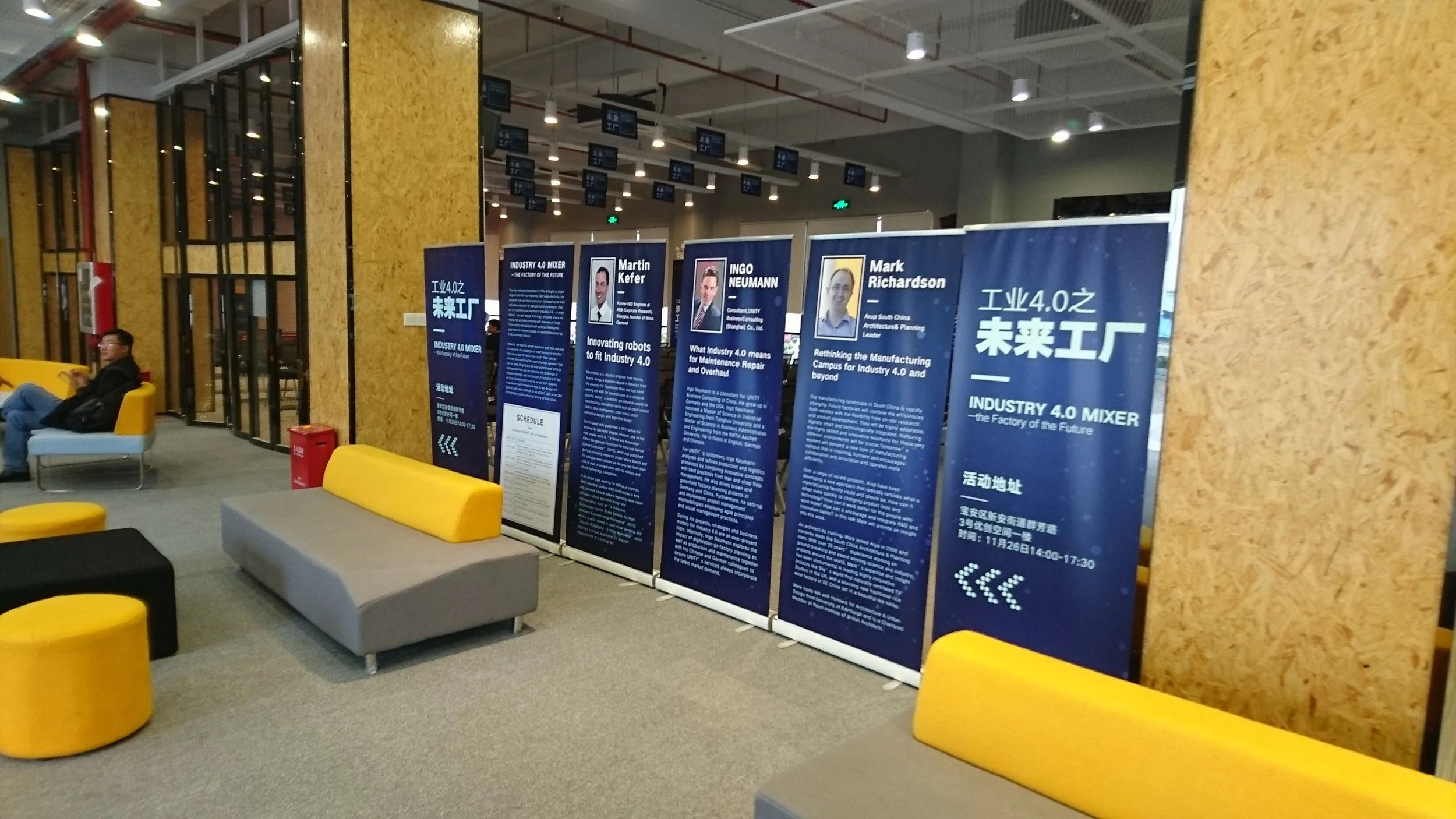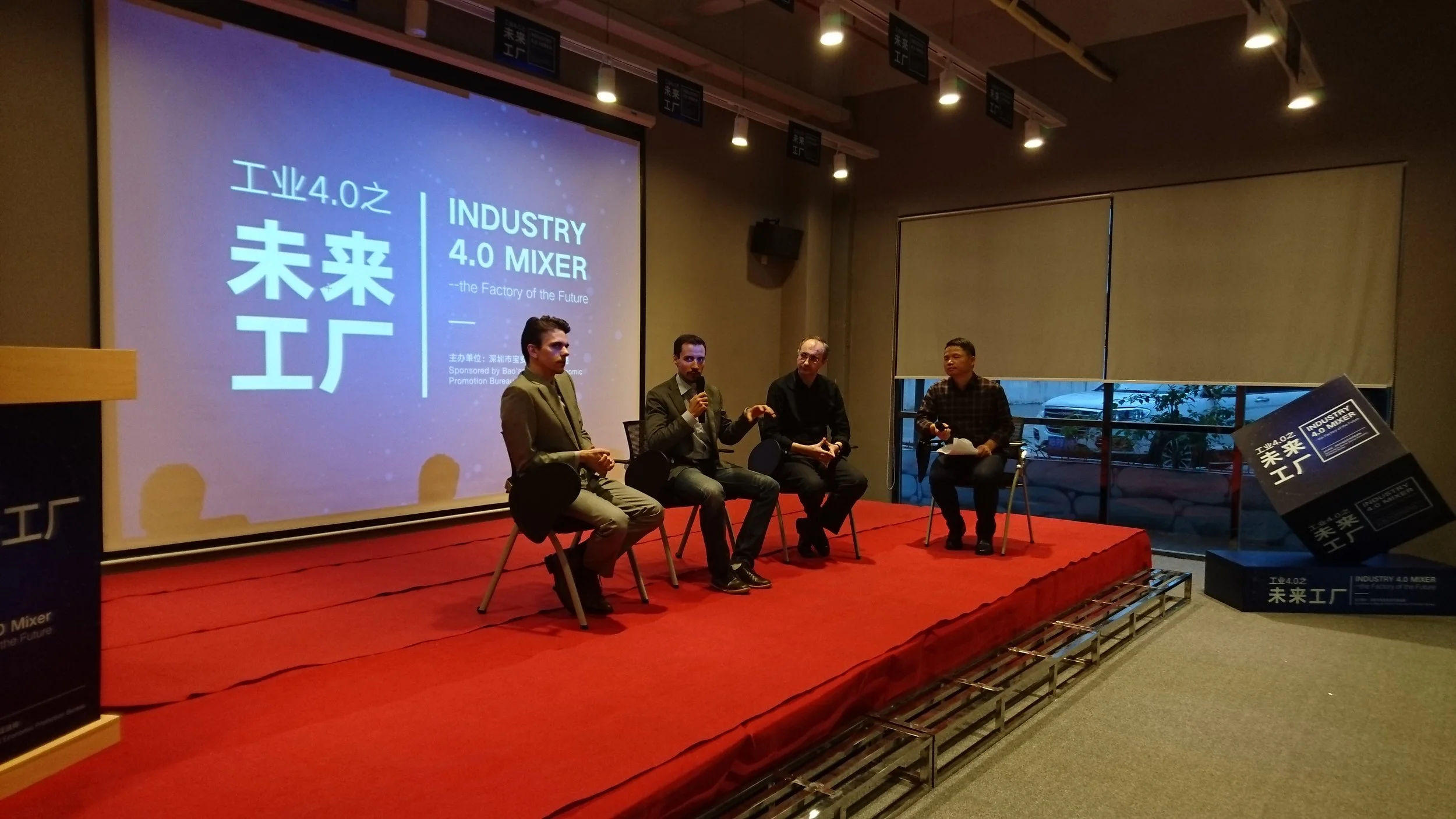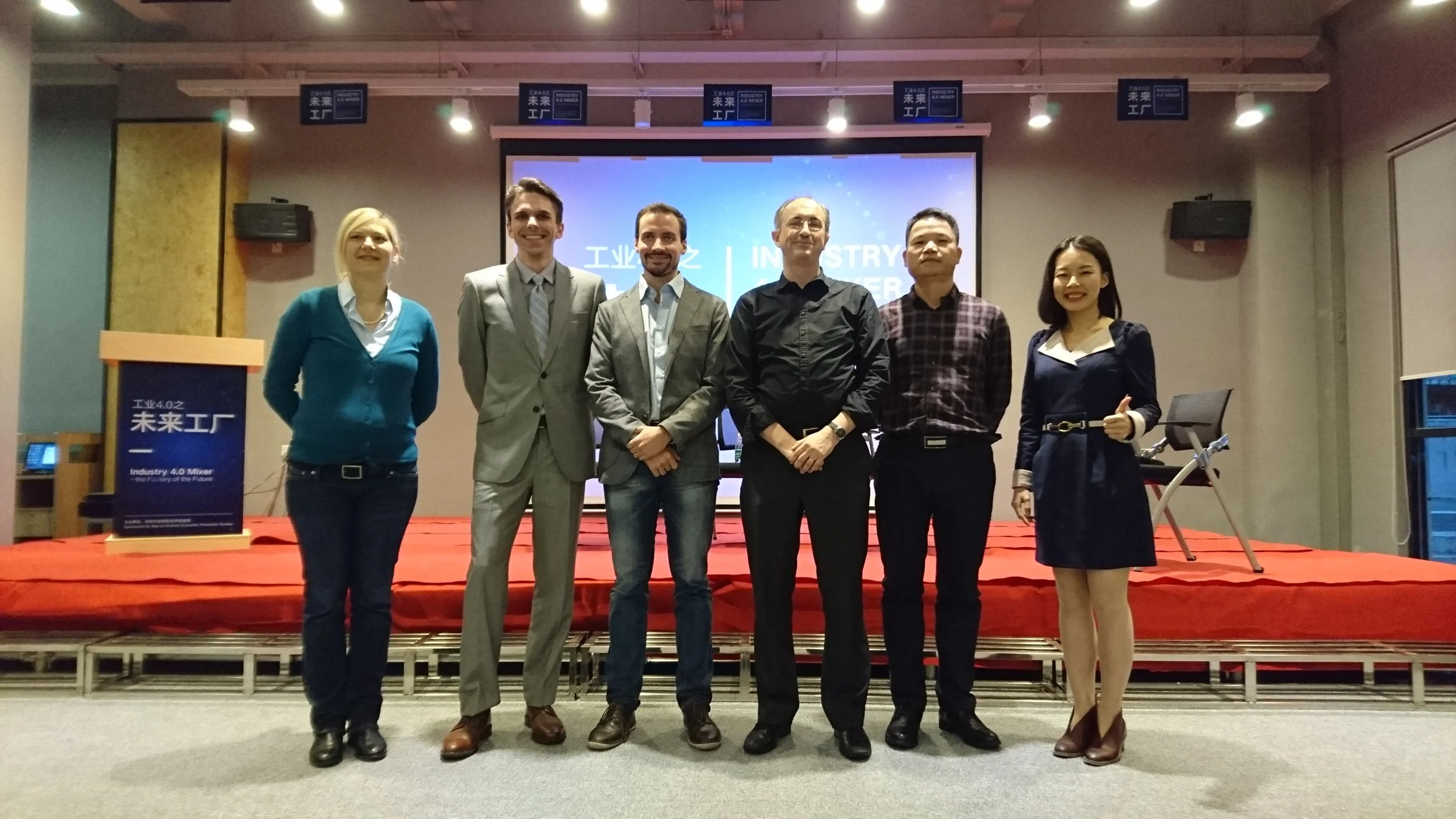Industry 4.0 and smart manufacturing are the foundational pillars for achieving efficiency in sustainability, transforming industrial operations through data-driven efficiency, predictive intelligence, and closed-loop systems that drastically reduce waste and energy consumption.
This transformative potential was expertly unpacked by our distinguished panel of presenters.
Mark Richardson from Arup South China Architecture and Planning Leader demonstrated how “Rethinking the Manufacturing Campus for Industry 4.0 and beyond’’ matters in the quest for true sustainability and operational excellence, arguing that the physical environment itself must be intelligently designed to enable the seamless flow of data, materials, and energy. He illustrated that by integrating smart and modular infrastructure, renewable energy systems, and flexible, adaptive layouts from the ground up, a manufacturing campus transforms from a static facility into a responsive, efficient, and deeply sustainable ecosystem, ultimately becoming the foundational bedrock that allows advanced technologies like IoT, AI, and automation to reach their full potential.
Martin Kefer, an R&D Engineer from ABB, Shanghai spoke about how “Innovating robots to fit Industry 4.0’’ is fundamentally about elevating them from isolated automated machines into intelligent, connected data hubs. He detailed how next-generation robots are embedded with sensors and AI, enabling them to not only perform complex tasks with precision but also to generate valuable performance data, self-diagnose issues, and communicate seamlessly within a digital ecosystem to enable predictive maintenance and unprecedented production flexibility.
Ingo Neumann, A Consultant from Unity Business Consulting from Shanghai, spoke about “What Industry 4.0 means for Maintenance, Repair and Overhaul'‘“ framing it not merely as a technological upgrade but as a fundamental strategic shift. He emphasized that the core of this transformation lies in leveraging data connectivity, IoT sensors, and AI-driven analytics to move from a reactive, schedule-based maintenance model to a truly predictive and prescriptive one. Neumann crucially addressed the critical human and process elements, outlining the necessary changes in organizational structure, workforce skills, and data management protocols required to fully harness Industry 4.0 for maximizing asset uptime, extending lifecycle value, and driving significant operational cost savings.




